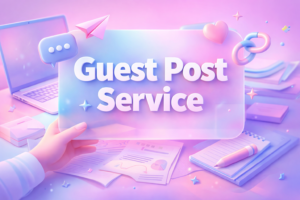Staying competitive in the digital landscape requires effective SEO strategies. As we move into 2026, businesses need to adapt to rapid changes. This includes understanding user behavior and search engine algorithms.
In this guide, we will explore essential strategies that can elevate your SEO game.
Whether you’re a local business looking for a Vancouver SEO company or seeking advice from SEO experts, we’ve got you covered.
We will discuss the tools and tactics necessary for success in 2026.
Let’s dive into the core principles that will help you thrive in the evolving world of SEO.
The Evolution of SEO
SEO has evolved significantly over the past few years. Initially focused on keyword stuffing and backlink quantity, it has transformed into a multi-faceted discipline that prioritizes user intent and experience.
This evolution is driven by advancements in search engine algorithms that aim to deliver the most relevant results to users.
As such, staying updated with these changes is crucial for maintaining a competitive advantage.
Integrating SEO with Other Marketing Channels
SEO should not be viewed in isolation but as part of a broader digital marketing strategy.
Integrating SEO efforts with social media, content marketing, and paid advertising can amplify results and create a cohesive brand presence online.
This integration ensures a seamless user journey from discovery to conversion, leveraging multiple touchpoints to build trust and authority.
Future Trends in SEO
As we look toward 2026, several trends are poised to shape the SEO landscape. These include the rise of AI and machine learning, the increasing importance of video content, and the growing emphasis on user privacy.
For businesses working with a Vancouver SEO company, preparing for these trends involves investing in technology and skills that can harness these opportunities, ensuring your strategies remain relevant and effective.
Forward-thinking agencies are already adapting their approaches to incorporate AI-driven insights, optimize for video search, and implement privacy-first tracking solutions that comply with evolving regulations.
By partnering with professionals who stay ahead of these developments, businesses can position themselves to capitalize on emerging opportunities while maintaining competitive visibility in search results.
The Role of SEO Tools
SEO tools are indispensable for today’s marketers. They help you analyze your website’s performance, monitor keyword rankings, and identify areas for improvement.
Tools like Google Analytics, SEMrush, and Moz provide insights that are critical for making informed decisions. By leveraging these tools, businesses can gain a deeper understanding of their audience and optimize their strategies accordingly.
Comprehensive Website Analysis
SEO tools offer comprehensive website analysis capabilities, allowing marketers to identify technical issues, track keyword performance, and assess backlink profiles.
This data-driven approach enables businesses to pinpoint weaknesses and opportunities, facilitating targeted improvements that enhance search visibility.
Regular audits using these tools can help maintain a healthy website and prevent potential SEO pitfalls.
Keyword Research and Strategy
Effective keyword research is the foundation of successful SEO. Tools like SEMrush and Moz offer sophisticated keyword research features that uncover high-potential keywords and phrases.
By understanding search volume, competition, and user intent, businesses can develop strategies that target the right audience with the right content, maximizing their reach and impact.
Competitor Analysis
Analyzing competitor strategies is essential for staying competitive in the SEO landscape. SEO tools provide insights into competitor rankings, backlink profiles, and content performance.
By understanding what works for competitors, businesses can refine their own strategies, identify gaps, and seize opportunities to outperform rivals in search engine results.
The Value of SEO Experts at Garage2Global
Collaborating with SEO experts, like those at Garage2Global, can provide a competitive edge. These professionals bring a wealth of experience and up-to-date knowledge, ensuring that your SEO strategies are effective and compliant with the latest search engine guidelines.
Partnering with experts can save time, resources, and effort while delivering superior results.
Expertise and Experience
SEO experts possess specialized knowledge and experience that can significantly enhance your SEO efforts.
Their understanding of complex algorithms, industry trends, and best practices enables them to craft strategies that align with your business goals.
With their guidance, businesses can navigate the intricacies of SEO with confidence, focusing on growth and success.
Tailored Strategies for Unique Needs
Every business is unique, and so are its SEO needs. SEO experts at Garage2Global offer tailored strategies that address specific challenges and objectives.
By conducting thorough assessments and understanding your target audience, they create customized plans that deliver measurable results, ensuring your SEO efforts are aligned with your broader marketing objectives.
Continuous Support and Optimization
The SEO landscape is dynamic, requiring continuous monitoring and optimization. SEO experts provide ongoing support, ensuring your strategies remain effective and adapt to changes in search engine algorithms and user behavior.
This proactive approach helps maintain and improve search rankings, driving sustained growth and visibility over time.
Key SEO Strategies for 2026
1. Prioritize User Experience (UX)

Search engines like Google prioritize websites that offer a great user experience. This means fast loading times, easy navigation, and mobile compatibility.
Improving UX not only enhances your SEO but also increases user engagement and conversion rates.
Prioritizing UX is essential for creating a positive impression and fostering loyalty among your audience.
Enhancing Website Loading Speed
Website loading speed is a critical component of user experience. Slow-loading pages frustrate users and lead to high bounce rates, negatively impacting SEO.
To enhance loading speed, consider compressing images, leveraging browser caching, and minimizing code.
These optimizations reduce load times, improve user satisfaction, and boost search rankings.
Designing Intuitive Navigation
Intuitive navigation is key to a seamless user experience. A well-structured website with clear navigation paths makes it easy for users to find information and explore content.
Simplify navigation by organizing content logically, using descriptive labels, and minimizing clicks to reach important pages. This approach enhances usability and encourages users to stay longer on your site.
Ensuring Mobile Compatibility
With the majority of searches conducted on mobile devices, mobile compatibility is crucial for SEO success.
Ensure your website is responsive and adapts to different screen sizes and orientations. Implement mobile-friendly design principles, such as larger buttons and touch-friendly elements, to provide a smooth experience for mobile users and improve search visibility.
2. Focus on Quality Content
Content remains king in the SEO world. Quality content is informative, engaging, and relevant to your audience’s needs.
It should answer questions, solve problems, and provide value. By focusing on quality, you establish authority, build trust, and encourage user interaction, all of which contribute to improved search rankings.
Conducting Thorough Keyword Research
Effective content creation begins with thorough keyword research. Understanding what your audience is searching for allows you to create content that aligns with their interests and needs.
Use keyword research tools to identify high-volume and low-competition keywords, and incorporate them naturally into your content to enhance its relevance and visibility.
Crafting Comprehensive and Authoritative Content
Comprehensive and authoritative content provides value to users and establishes your brand as a trusted source of information.
Aim to cover topics in-depth, addressing various aspects and providing actionable insights. Incorporate credible sources, data, and examples to support your points, enhancing the credibility and quality of your content.
Engaging Audiences with Diverse Content Formats
Diversifying content formats can enhance engagement and appeal to different audience preferences. Incorporate a mix of text, images, videos, infographics, and interactive elements to enrich the user experience.
This variety not only keeps users engaged but also increases the likelihood of content sharing, expanding your reach and influence.
3. Embrace Voice Search Optimization
With the rise of smart speakers and voice-activated devices, voice search is becoming increasingly popular.
Optimizing for voice search involves focusing on natural language and long-tail keywords. As users adopt voice search for convenience and speed, adapting your strategies to accommodate this trend is crucial for maintaining visibility.
Adopting Conversational Language
Voice search queries often mimic natural conversation, requiring a shift in keyword strategy. Focus on long-tail keywords and phrases that reflect how people speak.
Use conversational language in your content, addressing common questions and providing clear, concise answers. This approach aligns with voice search user behavior and improves search rankings.
Structuring Content for Featured Snippets
Featured snippets are prime real estate for voice search results. Structuring content to answer specific questions directly increases the likelihood of being featured.
Use bullet points, numbered lists, and concise paragraphs to present information clearly. Aim to provide comprehensive answers that address user queries effectively, enhancing your chances of being featured in voice search results.
Optimizing for Local Voice Searches
Many voice searches are location-based, making local SEO crucial for voice search optimization. Optimize your content for local queries by incorporating location-specific keywords and phrases.
Ensure your business listings are accurate and up-to-date on platforms like Google My Business, enhancing your visibility for local voice searches and attracting nearby customers.
4. Leverage Artificial Intelligence (AI)
AI is transforming SEO by providing insights into user behavior and preferences. Tools powered by AI can help you predict trends, personalize content, and automate mundane tasks.
Leveraging AI technologies enables businesses to optimize their SEO strategies, enhance user experiences, and achieve greater efficiency.
Analyzing Data and Identifying Patterns
AI tools offer powerful capabilities for analyzing vast amounts of data and identifying patterns. By leveraging AI-driven insights, businesses can better understand user behavior, preferences, and search trends.
This data-driven approach informs strategic decisions, allowing marketers to tailor content and optimize strategies for improved results.
Implementing AI-Powered Chatbots
AI-powered chatbots enhance customer service and engagement by providing instant responses to user queries.
These chatbots can assist with common questions, guide users through processes, and offer personalized recommendations.
By integrating chatbots into your website, you improve user satisfaction, streamline interactions, and enhance overall user experience.
Personalizing Content Recommendations
AI enables personalized content recommendations based on user behavior and preferences. By analyzing user interactions, AI algorithms can suggest relevant content, increasing engagement and encouraging longer site visits.
Personalization enhances the user experience, fosters loyalty, and boosts conversion rates, contributing to improved SEO performance.
5. Adapt to Artificial Intelligence Engine Optimization (AIEO)
As we move deeper into 2026, a significant shift is happening beyond traditional SEO. Artificial Intelligence Engine Optimization, or AIEO, is becoming essential as AI-powered search engines and conversational platforms like ChatGPT, Google Bard, and Perplexity reshape how people find information.
Unlike traditional search engines that return lists of links, AI engines provide direct answers by synthesizing information from multiple sources.
Understanding How AI Engines Work
AI engines don’t just crawl and index web pages like traditional search engines. They understand context, synthesize information, and generate responses based on their training data and real-time web access.
This means your content needs to be structured in ways that AI can easily understand, extract, and reference when answering user queries.
Creating AI-Friendly Content
To optimize for AI engines, focus on creating clear, authoritative content that directly answers questions. Use natural language that mirrors how people actually ask questions.
Structure your content with clear headings, concise paragraphs, and definitive answers to common queries in your industry. AI engines favor content that’s well-organized, factually accurate, and provides genuine value without excessive fluff.
Building Topical Authority for AI Recognition
AI engines prioritize sources they perceive as authoritative on specific topics. Build this authority by consistently publishing in-depth content around your core subject areas, citing credible sources, and demonstrating expertise through comprehensive coverage.
The goal is to become a reference source that AI engines trust and cite when answering related queries.
Optimizing for AI Citations and References
When AI engines generate answers, they often cite their sources. Ensure your content is citation-worthy by providing unique insights, original research, clear data, and expert perspectives.
Make key information easy to extract by using bullet points, statistics, and direct statements that AI can reference when formulating responses.
Technical SEO: The Backbone of Success
Technical SEO involves optimizing your website’s infrastructure to make it easier for search engines to crawl and index your content.
This includes ensuring that your website is secure, fast, and free of errors. A solid technical foundation is essential for maximizing search visibility and ensuring a smooth user experience.
Ensuring Site Security with HTTPS
Site security is a top priority for search engines and users alike. Using HTTPS to secure your website protects user data and builds trust with your audience.
Search engines prioritize secure sites, making HTTPS a critical component of technical SEO. Implementing SSL certificates enhances security, improves search rankings, and fosters user confidence.
Creating and Submitting XML Sitemaps
XML sitemaps are essential for helping search engines understand your site structure and index your content effectively.
Create and submit XML sitemaps to search engines like Google to ensure all important pages are crawled and indexed.
Regularly update your sitemaps to reflect changes in your site, improving crawl efficiency and search visibility.
Implementing Schema Markup for Rich Snippets
Schema markup enhances search listings with rich snippets, providing additional context and information to users.
Implementing schema markup can improve click-through rates by making your listings more informative and visually appealing.
Use structured data to highlight key details, such as reviews, ratings, and product information, enhancing your search visibility and user engagement.
Monitoring and Adapting Your SEO Strategy
SEO is not a one-time task but an ongoing process. Regularly monitor your website’s performance using SEO tools and adjust your strategies as needed.
Keep an eye on industry trends and updates to stay ahead of the curve. By continuously refining your approach, you can maintain and improve your search rankings over time.
The Importance of Analytics
Analytics tools provide valuable data on how users interact with your site. Use this information to identify strengths and weaknesses in your SEO strategy.
By understanding user behavior, traffic sources, and conversion paths, you can make informed decisions that optimize your strategy and enhance your site’s performance.
Identifying User Behavior Patterns
Analytics tools reveal patterns in user behavior, such as time spent on pages, navigation paths, and exit points.
Analyzing these patterns helps identify areas where users may encounter friction or disengagement. By addressing these issues, you can improve user experience, reduce bounce rates, and increase conversions, positively impacting your SEO efforts.
Evaluating Traffic Sources and Performance
Understanding where your traffic comes from and how it performs is crucial for refining your SEO strategy. Analytics tools provide insights into traffic sources, allowing you to assess the effectiveness of different channels.
Use this data to allocate resources effectively, focusing on high-performing channels and optimizing underperforming ones for better results.
Analyzing Conversion Paths and Funnel Optimization
Analyzing conversion paths provides insights into the user journey and areas for optimization. By understanding how users move through your site, you can identify opportunities to streamline the conversion process and reduce friction.
Optimize landing pages, calls-to-action, and checkout processes to enhance conversion rates and improve overall SEO performance.
Key Metrics to Track
Tracking key metrics is essential for measuring the success of your SEO efforts. Focus on metrics such as organic traffic, bounce rate, conversion rate, and keyword rankings.
By monitoring these metrics, you can assess the effectiveness of your strategies, identify areas for improvement, and make data-driven decisions that drive growth and success.
Organic Traffic
Organic traffic measures the number of visitors who reach your site through search engine results. It is a key indicator of your SEO success and visibility. Track changes in organic traffic over time to evaluate the impact of your SEO strategies and identify trends that inform future optimizations.
Bounce Rate
Bounce rate measures the percentage of visitors who leave your site after viewing only one page. A high bounce rate may indicate issues with user experience or content relevance. Monitor bounce rates to identify pages that may need improvement, ensuring visitors engage with your content and explore further.
Conversion Rate
Conversion rate measures the percentage of visitors who complete a desired action, such as making a purchase or signing up for a newsletter. A high conversion rate indicates effective SEO and content strategies. Analyze conversion rates to identify successful tactics and areas for enhancement, driving better results and achieving your business goals.
Keyword Rankings
Keyword rankings indicate your site’s position in search engine results for specific keywords. Tracking keyword rankings helps assess the effectiveness of your SEO efforts and identify opportunities for improvement. Regularly monitor rankings to adjust strategies, target new keywords, and maintain a competitive advantage in search results.
Conclusion
SEO in 2026 will require a well-rounded approach that integrates user experience, quality content, and advanced technology.
By leveraging SEO tools and expertise from professionals like those at Garage2Global, you can ensure that your strategies are effective and future-proof.
Stay adaptable, monitor your performance, and you’ll be well on your way to SEO success. Remember, the key to thriving in the ever-evolving SEO landscape lies in continuous learning, adaptation, and innovation.









